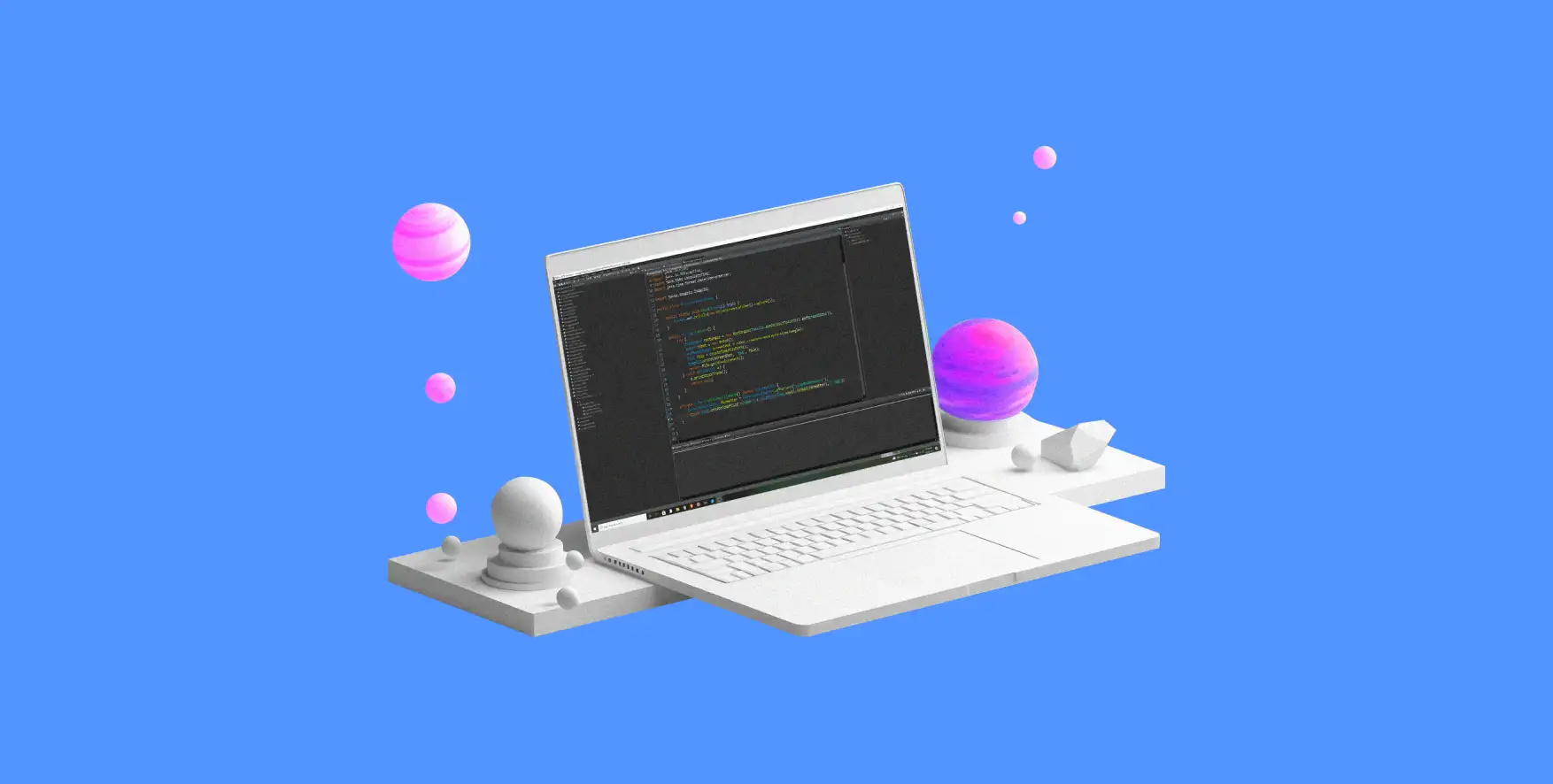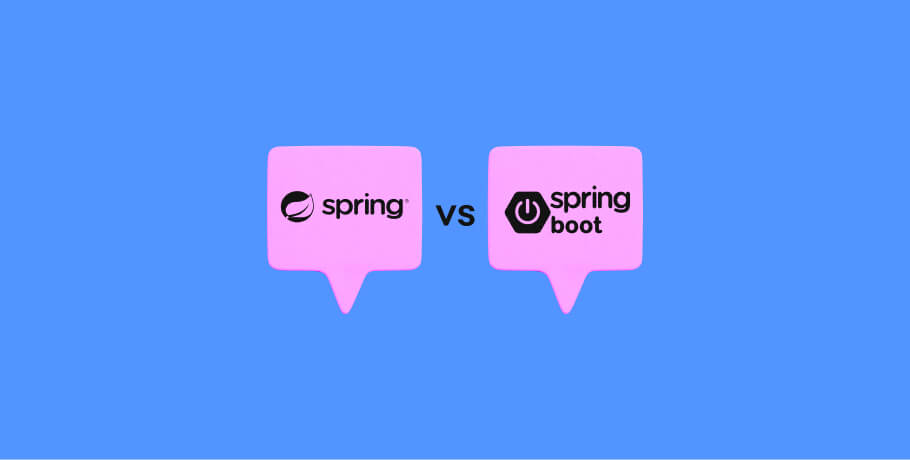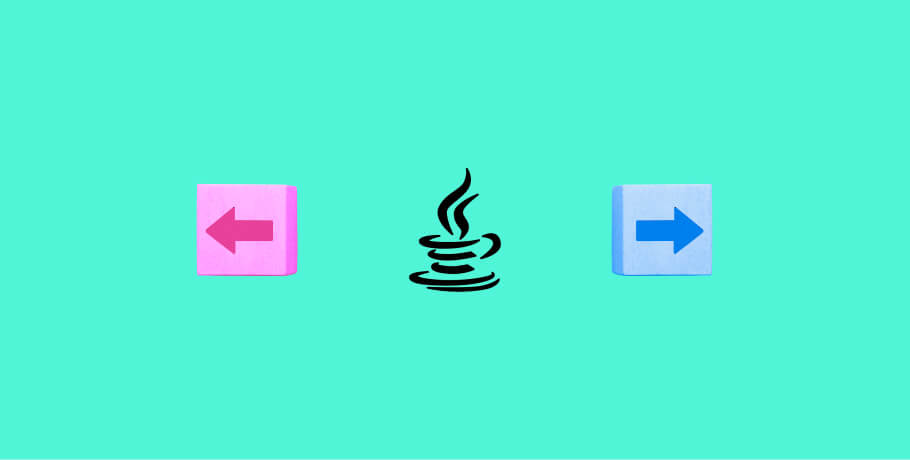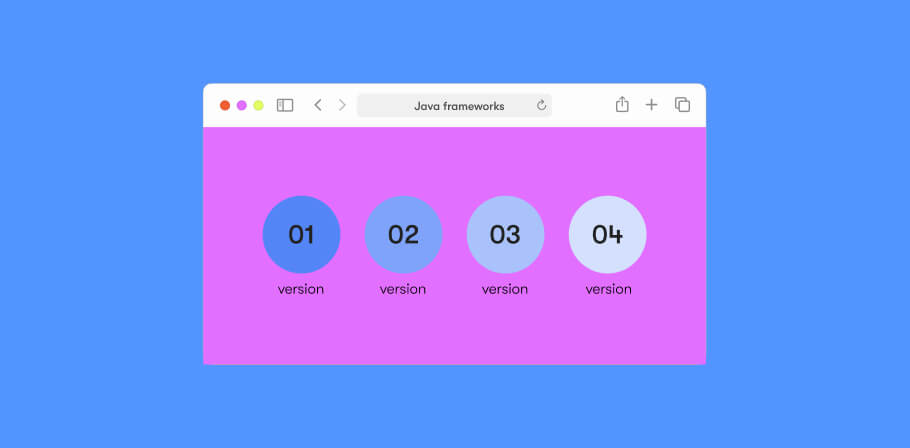Java is an object-oriented and high-level general-purpose language with many applications. It is often used to create desktop GUI programs, games, mobile applications, and online apps. Java is considered a cross-platform computer language, allowing you to execute compiled Java source code on any system compatible with the JVM and Java without recompiling it.
Java is very popular in the software industry as it eased distribution issues across platforms and made the development process effortless. The computer language is secure and dynamic because it’s object-oriented. It is among the superior programming languages, frequently used to power cloud-native deployments, hardware architectures, multi-tier architectures, server-sliding, software distribution through the internet, and much more.
Organizations and companies understand how effective Java objects are when dealing with their server issues and use it to increase scalability, productivity, and performance to a whole other level.
Therefore, it’s safe to conclude that you’ll need to understand how to write decent Java source code to work as a professional Java developer. When you’re starting to learn Java, your main objective is to master the language’s fundamental principles.
If you want to become a Java developer the best way of applying your Java knowledge is by working on real-time projects and including them in your portfolio, thus increasing your chances of getting hired for well-paying positions. The best way of applying your Java knowledge is by working on real-time projects and including them in your portfolio, thus increasing your chances of getting hired for well-paying positions.
In this article, we’ll review some of the top resume-boosting Java projects for portfolio excellence and add to our coverage of how to make a portfolio to land a job in tech.
Why having a portfolio for Java developers is important
Building a portfolio will help you establish yourself as a Java developer. Whether you’re only starting or a professional with many years of experience, having a portfolio will allow you to showcase your expertise, demonstrate your Java skills, and eventually land your dream job or advance your career to new heights.
Here are the reasons why you need to build a portfolio as a Java developer:
- Demonstrate your expertise: Your portfolio will show potential employers your expertise in Java or a particular technology. When you include projects demonstrating your Java skills and expertise, you position yourself as an expert in the computer language.
- Showcase your skills: Use your portfolio as a collection of works that display your creativity, problem-solving skills, and coding capabilities. Showcasing projects you've previously done shows potential clients and employers what you can do.
- Provide an opportunity for growth: Your portfolio is also a platform for continuous growth and learning for a Java developer. Add new projects while always improving existing ones to demonstrate your willingness to adapt and learn and your commitment as a developer.
- Build your confidence: A well-crafted portfolio builds your confidence as a Java developer. Completing and displaying your amazing Java projects in your portfolio will give you a sense of pride and accomplishment.
- Distinction: The developer job market is highly competitive, but you can stand out with a strong portfolio showcasing your abilities and skills, which gives you an advantage over candidates who don’t have one.
A portfolio is important if you want to succeed as a Java developer. So, start working on it as soon as possible and showcase your expertise!
7 skills you can practice with your Java projects
Before we dive into the many projects you can undertake to sharpen your Java skills and showcase what you can do to potential employers or collaborators, let’s talk about the skills you can practice to beef up your employability.
- Object-oriented programming: Mastering OOP concepts like encapsulation, inheritance, polymorphism, and abstraction is fundamental. You must understand this to tackle projects.
- Multithreading and concurrency: Understanding how to manage concurrent processes and threats is critical to ensuring high-quality performance.
- Java database connectivity: Sharpen your skills in connecting Java apps to databases. Implementing systems like an online bank management system or e-healthcare management system will show how well you can do this.
- Web technologies (Servlets, JSP, Spring Framework): Knowledge of such web development technologies is important for web-based projects. An online medical management system or smart city project would be ideal to show your skills.
- RESTful APIs: Creating and consuming RESTful services is an in-demand skill that can be showcased when developing an email client software or mobile tracking system.
- Unit testing (Mockito/JUnit): Writing usable source code and performing unit testing ensures source code quality. In complex code projects like a supply chain management system, you will have the chance to showcase how well you can do this.
- Build tools (Gradle/Maven): Familiarity with build automation tools is important for managing dependencies and project lifecycles. You can apply this to any project you would like to finish.
With your Java skills honed and your sights set on a job, those looking to transition to a senior Java developer role can find interview questions we’ve prepared to get ready for interviews.
Best Java projects for a portfolio: top examples
For a career in software development, you simply must work on your own projects. The best way to materialize your theoretical knowledge while honing your skills is through developing real-world projects.
As an aspiring Java developer, working on real-world Java projects will give you practical experience, which is currently among employers' primary recruitment criteria. Working on Java projects will test your strengths and weaknesses and give you the exposure you can leverage to advance your career effectively.
Here's a list of some of the best Java projects for enhancing your portfolio that will strengthen your foundation and let you climb up the career ladder, whether you’re a beginner, an expert, or somewhere in between.
Beginner to intermediate Java projects
To get you started, it is best to work on projects within your ability level to ensure you do not get frustrated because of complexity.
Our first section covers some beginner to intermediate Java projects you can tackle at the lower end of your abilities or as a learner to hone your skills and showcase what you can deliver.
1. Social networking platform
This is an ideal Java project. You can build a social networking platform in Java that includes all important elements like a friend request module, sharing posts, a comment section, likes, post images, calling features, a chat box, etc.
You may also include extra special functions and features in the project. As much as you can use Java’s various APIs to make things more convenient and easier, you’ll still need to have a strong understanding of many other disciplines to complete the social networking platform project like databases, computer networking, and many other disciplines on top of your Java programming language skills.
2. Online survey tool
To create this survey tool, you must be familiar with many Java concepts. Depending on the client's needs, you may need to alter the tool so that it restricts clients and users from accessing certain surveys.
To develop a system like this, such as PostgreSQL or MySQL, you must fully use a database management system (DBMS) to store the data.
3. Traffic controller
This traffic project suits intermediate and beginner Java programmers. This project's main objective is to develop an automated system for traffic control management. The project comprises several modules that execute various operations, like traffic police supervision for a certain area, traffic route management, and traffic light control.
Additionally, if you have a working knowledge of other topics like Servlets, OOPs, Java Swing, etc., you can develop this project in Java with MySQL and JSPs. You can even take the project further by using other technologies like Hibernate and Spring and adding more complex functionalities.
4. Airline reservation tool
Creating a web and mobile application for an airline reservation system or similar systems is a great way to showcase your Java skills. The project can be used to book flights, automate processes, and quickly check flight details for users.
You can add as many features as you would like and improve on what is available. The system will showcase skills that tackle issues across database handling, basic networking, and GUIs.
5. ATM simulation system
This project is a user-oriented showcase showing you what you can do with a command-line user interface. You will also be required to show that you can work on the admin and user aspects of the ATM.
The bank uses the admin side to register accounts, update details, manage accounts, and handle user data according to the industry’s best practices, all of which call on you to deploy your knowledge of routine banking operations, building enterprise software, state management, and transaction handling.
6. Email client software
Creating email client software is a great showcase for your programming skills and calls on you to use the standard sockets, networking, and the Java Mail API. You will also be required to use protocols like POP3 and SMTP, which is great for beginners.
Unlike the old email systems that use HTTP port 80 for access, you will create a more secure way of sending electronic mail while showing that you understand networking protocols and user interface design.
The intermediate-level Java project ideas are simpler and can be worked on as Java side projects, as you slowly build Java projects that are more advanced.
Advanced Java projects
Once you have mastered the basic projects and have shown you are more than capable of tackling the standard fare, we move on to the more advanced levels of Java development.
Here, we find Java project ideas that include Java backend projects requiring a more expansive knowledge base and understanding beyond the foundational aspects of the programming language.
1. Data visualization software
Data visualization is all about making data easily digestible using graphical or pictorial presentations. It is a convenient way to summarize data, surface insights, and communicate quickly.
Some project ideas for data visualization include:
- Interactive dashboard for data analysis: Build a web-based application that can take input data and represent it as bar charts, line graphs, pie charts, etc.
- Real-time data visualization tool: Develop a tool that can connect to live data sources through APIs and display the data in real-time. It could be something like weather data or stock prices.
- Geographic data visualization: Create a program to plot data points onto a map to visualize location-based trends and demographic information.
Others include machine learning data visualizers, customizable reporting tools, social network analysis tools, etc.
2. E-healthcare management system
Creating such a system is a great way to showcase your skills across the many crucial aspects of developing the health industry.
You can show that you understand compliance and legal knowledge, including implementing regulations like HIPAA or GDPR; security protocols such as defensive coding practices and data protection; database management, including database design, SQL, normalization, and the use of ORM tools like Hibernate; and backend logic to create services that can handle high volumes of transactions and data processing.
3. Network analyzer
If you would like to showcase your skills and understanding of network protocols and socket programming, you can apply them for capturing and analyzing network packets. You can also take the time to show how well you use libraries like Pcap and your capabilities to integrate native libraries and handle low-level network data.
You can also show that you can handle the processing and interpretation of binary data, a crucial part of understanding network traffic.
4. Online bank management system
Working on an online bank management system is an opportunity to showcase that you understand various enterprise and complex development aspects. First, you can show security proficiency by implementing authentication, authorization, and secure transaction processing.
You can also show how well you understand ACID properties and how to ensure transactional integrity in a concurrent environment. You can also show your ability to manage concurrent users and processes, which are vital for any banking system that operates in real time.
This is yet another opportunity to showcase your ability to secure database integrity, which is very important when dealing with financial records.
5. Smart city project
If it sounds expansive, it’s because it is. A smart city project is the largest canvas you can ever work on, showcasing everything from API integrations to running the city’s interconnected ecosystem.
You will also need to show that you can handle different types of data from different sources, requiring the development of efficient data structures and algorithms. If the project has any IoT aspect, you can showcase your skills in handling real-time data streams and possibly working with MQTT and other IoT protocols.
To aid you in creating specialized portfolios, check out our backend developer portfolio guide to see how one highlights their specialties.
How to best present your Java portfolio projects
In the modern world, where sharing your resume/portfolio is easier than ever, a website is the best way to showcase your skills to any relevant/interested parties. Over time, professionals have refined the process and identified what works.
Here are some tips on the best way to present your portfolio projects.
1. Create an interactive website
One way to make your portfolio more attractive to viewers is to make it interactive and immersive. You can do this with the help of games, videos, and animations. Interactive elements can help you show your programming skills and personality and create a fun experience for your visitors.
2. Showcase your process
It is not enough to pick good Java projects for resume showcasing; you also need to walk the visitors through your process to create the final product.
You can use different methods to showcase the process, including testimonials, tutorials, feedback, sketches, screenshots, drafts, and any aids that could help clarify the process you took.
You can include a showcase of your coding with snippets, demonstrating your problem-solving abilities and understanding of Java and programming languages.
3. Emphasize diversity
Your potential employers need to know that you are not a one-trick pony. That means showcasing all the skills you have managed to accrue up to date as best as possible. That includes data structures, algorithms, user interfaces, and database integration. This shows your versatility as a developer.
4. Include project documentation
If applicable, offer documentation that explains the project’s functionality, implementation, and architecture details.
5. Include your resume and contact information
Make sure to have your resume summarizing your qualifications and experience up to this point and attach contact information so prospects can easily reach you.
Conclusion
The Java resume projects we have highlighted are not, by any means, the only or best ones. We just wanted to showcase the many different things you can work on and recommend that you work on the Java project ideas you feel most comfortable with and innovate to deliver something special whenever possible.
By the time you get to building a project, you will have gone through the fundamentals of a language, and with your project alone can even sway someone considering a dilemma like choosing between Java EE and Spring.
Pick your projects wisely, and walk prospects through your portfolio for the best results.
FAQ

As Chief Editor, Darya works with our top technical and career experts at EPAM Anywhere to share their insights with our global audience. With 12+ years in digital communications, she’s happy to help job seekers make the best of remote work opportunities and build a fulfilling career in tech.
As Chief Editor, Darya works with our top technical and career experts at EPAM Anywhere to share their insights with our global audience. With 12+ years in digital communications, she’s happy to help job seekers make the best of remote work opportunities and build a fulfilling career in tech.
Explore our Editorial Policy to learn more about our standards for content creation.
read more




















